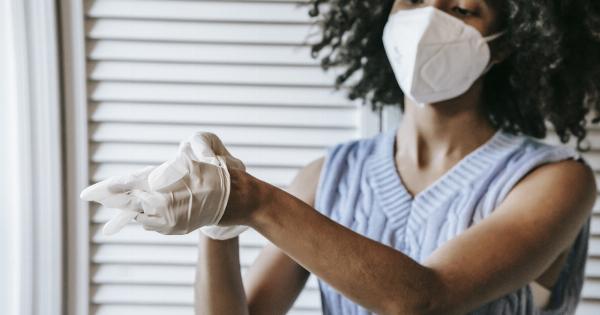Bacterial protection is essential in maintaining a healthy and hygienic environment. Bacteria are microscopic organisms that can cause various infections and diseases in humans, animals, and plants.
They can easily spread through direct contact, contaminated surfaces, or the air we breathe. By opting for proper bacterial protection, we can significantly reduce the risk of infections and create a safer living and working environment.
Understanding Bacteria and Their Impact
Bacteria are single-celled organisms that can be found nearly everywhere on Earth. While not all bacteria are harmful, some can cause severe illnesses.
Common bacterial infections include strep throat, urinary tract infections, food poisoning, pneumonia, and skin infections. These infections can be challenging to treat and may require antibiotics or other medications.
When bacteria enter our bodies, they can multiply rapidly and overwhelm our immune system’s defenses. This can result in an infection, leading to symptoms such as fever, cough, pain, and fatigue.
In severe cases, bacterial infections can even be life-threatening, especially for individuals with weakened immune systems.
The Importance of Bacterial Protection
Opting for proper bacterial protection is crucial for several reasons:.
1. Preventing the Spread of Infections
By implementing effective bacterial protection measures, we can reduce the transmission of infections from person to person.
Simple practices such as regular handwashing, using hand sanitizers, and covering our mouths and noses when sneezing or coughing can go a long way in preventing the spread of bacteria.
2. Creating a Safer Healthcare Environment
In healthcare settings, bacterial protection is paramount to ensure patient safety. Hospitals and clinics must follow stringent protocols to prevent healthcare-associated infections.
This includes proper hand hygiene, sterilization of medical equipment, and the use of personal protective equipment.
3. Promoting Food Safety
Bacterial contamination can occur at any stage of food production and processing. By implementing appropriate hygiene practices in the food industry, we can minimize the risk of foodborne illnesses.
This includes maintaining clean food preparation surfaces, storing food at proper temperatures, and practicing good personal hygiene while handling food.
4. Enhancing Workplace Hygiene
A clean and hygienic workplace is vital for employee well-being and productivity.
Bacterial protection measures such as regular cleaning of surfaces, sanitization of shared equipment, and promoting personal hygiene can prevent the spread of illnesses among co-workers.
5. Maintaining a Healthy Living Space
Proper bacterial protection is essential in our homes to safeguard the health of our families.
Regular cleaning, disinfecting high-contact surfaces, proper waste management, and properly storing and handling cleaning products can help create a healthy living environment.
Effective Bacterial Protection Measures
There are several effective measures you can take to protect yourself and those around you from harmful bacteria:.
1. Hand Hygiene
Washing your hands with soap and water for at least 20 seconds is one of the most effective ways to prevent the spread of bacteria. If soap and water are not available, use an alcohol-based hand sanitizer with at least 60% alcohol content.
2. Proper Food Handling
Always ensure that food is cooked thoroughly, stored at appropriate temperatures, and handled with clean utensils and surfaces. Avoid cross-contamination by using separate cutting boards and utensils for raw and cooked foods.
3. Cleaning and Disinfecting
Regularly clean and disinfect frequently touched surfaces such as doorknobs, light switches, and countertops. Use appropriate disinfectants recommended for killing bacteria and follow the instructions for effective use.
4. Vaccinations
Stay up to date with recommended vaccinations, as they can provide protection against specific bacterial infections such as tetanus, diphtheria, pertussis, and pneumococcal infections.
5. Promote Respiratory Hygiene
Cover your mouth and nose with a tissue or your elbow when coughing or sneezing to prevent the spread of bacteria through respiratory droplets. Discard used tissues immediately and wash your hands afterward.
6. Personal Protective Equipment
In certain settings, such as healthcare or hazardous environments, wearing appropriate personal protective equipment (PPE) can provide an additional barrier against bacterial exposure. This may include gloves, masks, goggles, or gowns.
7. Stay Home When Sick
If you’re feeling unwell, it’s important to stay home to prevent the spread of bacteria to others. Avoid close contact with people who are sick and follow the guidance of healthcare professionals.
Conclusion
By prioritizing proper bacterial protection measures, we can reduce the risk of infections and create safer environments for ourselves and others.
Taking simple steps such as practicing good hand hygiene, maintaining cleanliness, and following recommended immunizations can go a long way in preventing the spread of harmful bacteria. Remember, bacterial protection is everyone’s responsibility, and by working together, we can create a healthier and safer world.






























